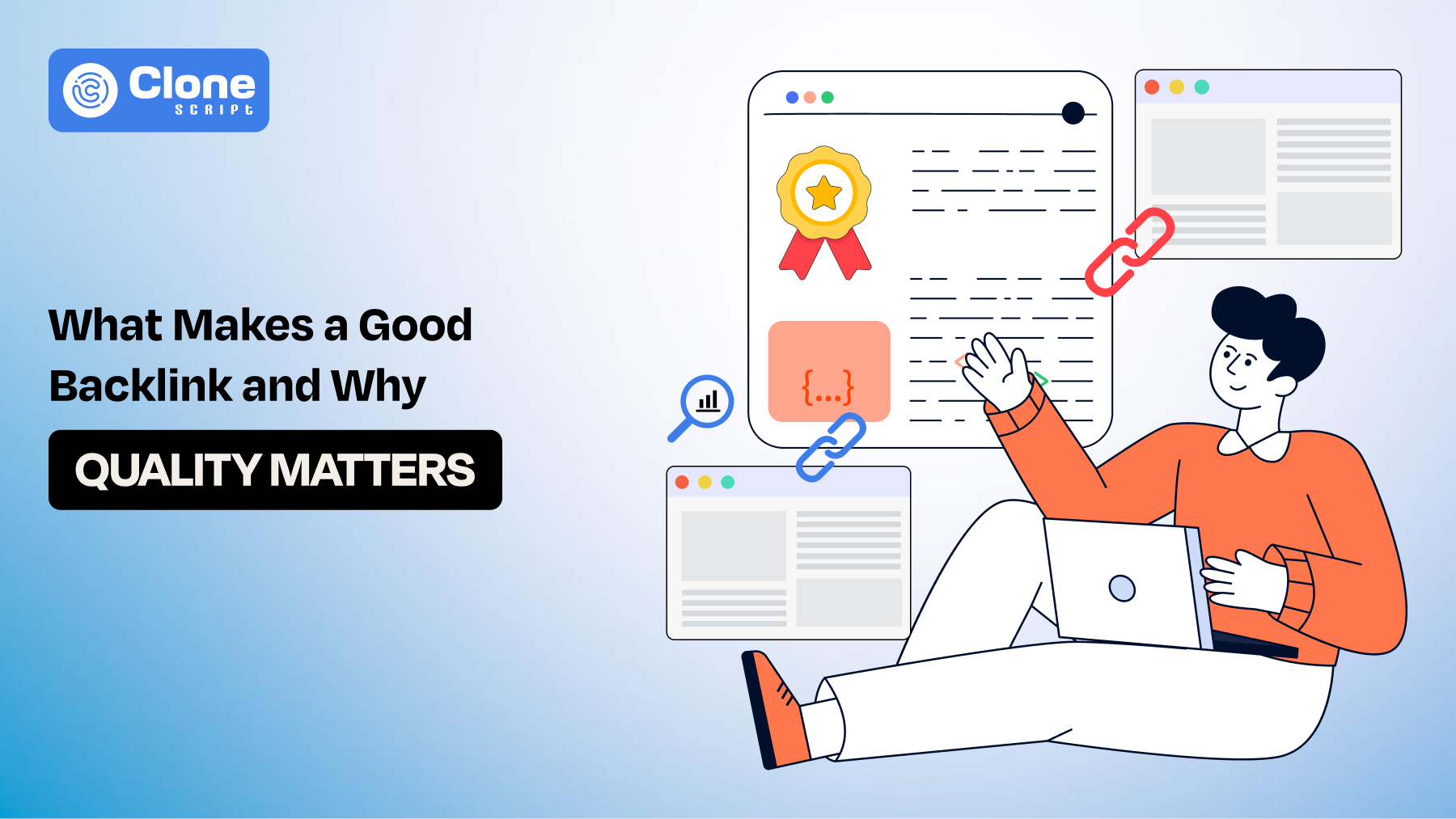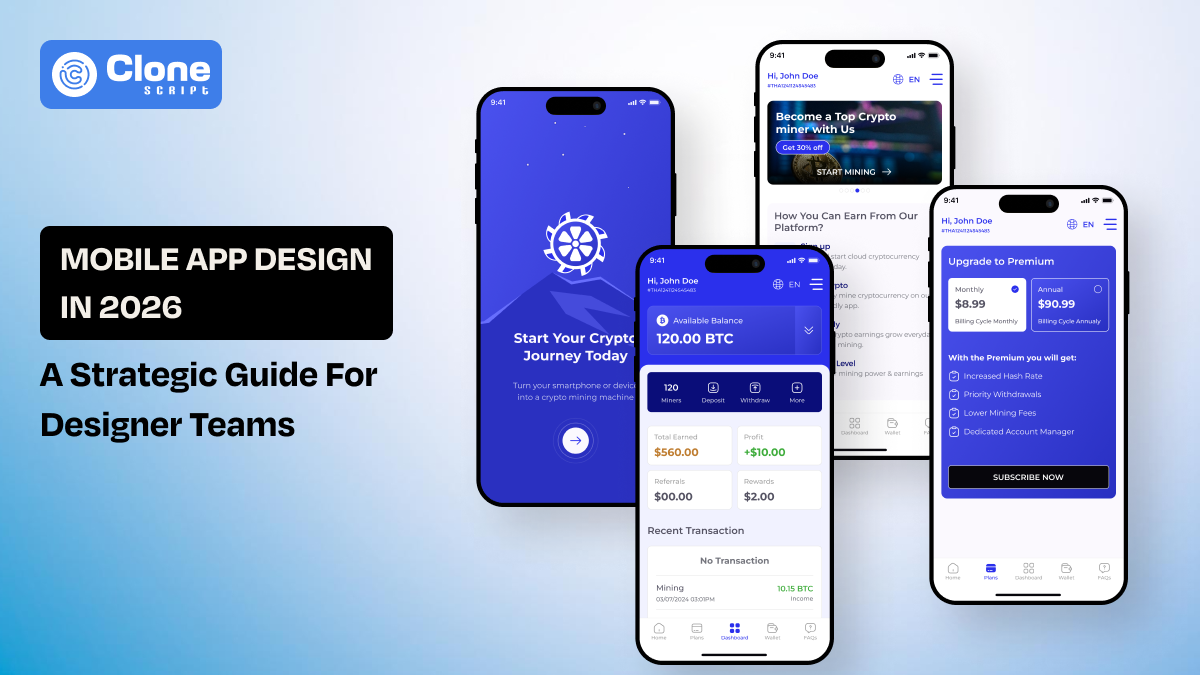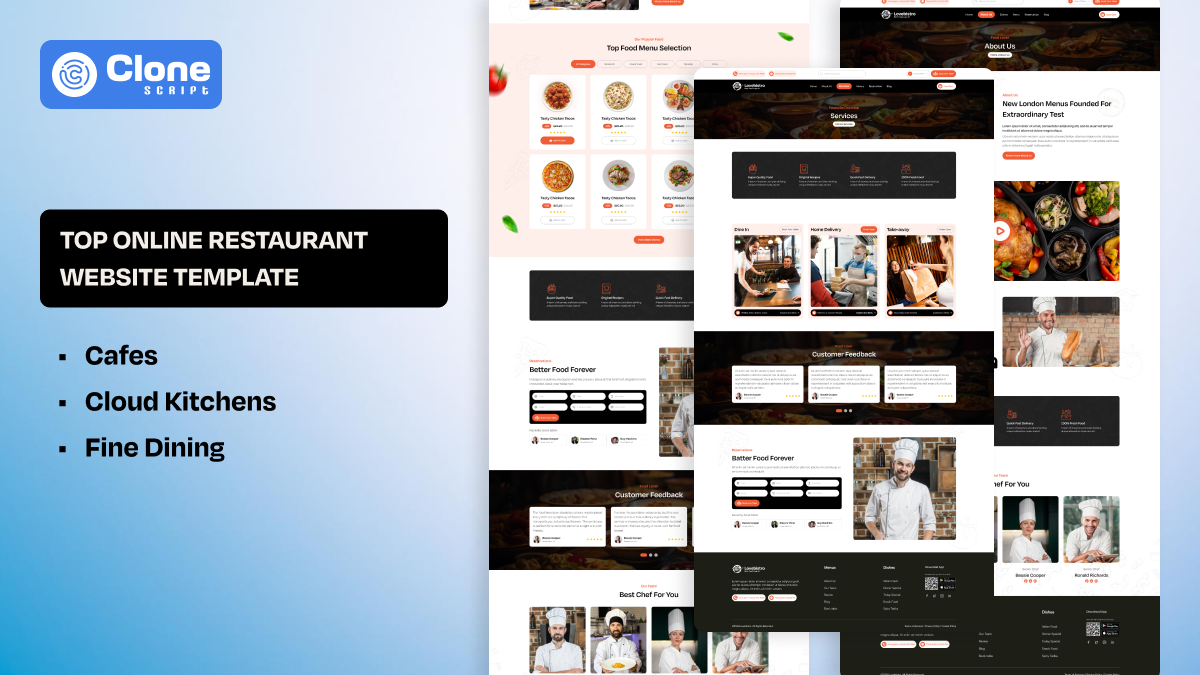What Makes a Good Backlink? And Why Quality Matters More Than Quantity
In the world of SEO, backlinks are often regarded as one of the most critical ranking factors. For many businesses, the instinctive thought is: “The more backlinks, the better!” While backlinks are essential, it's not about how many links you have, it's about how valuable they are.
If you're trying to enhance your SEO performance, getting backlinks from the right places can be the difference between soaring to the top of search results and being buried on page 10. But what exactly makes a backlink good, and why should you care more about quality than quantity?
Let’s understand what makes a great backlink, why quality matters more than quantity, and how you can start building links that truly move the engine for your business.
Why Backlinks Matter: The Power of Trust and Authority
Backlinks, in simple terms, are votes of confidence. When a website links to your content, it’s saying, “This is valuable; I trust it.”
Search engines, particularly Google, use backlinks as a key metric for determining the authority and credibility of your site. In Google’s eyes, a backlink from a respected site is like a stamp of approval for your content.
However, Google is far from being blind to manipulation. Not all backlinks are created equal. Some can even hurt your rankings if they come from the wrong sources.
That’s why focusing on building high-quality backlinks rather than quantity is important.
What Makes a Good Backlink?
So, what exactly makes a backlink "good"? Let’s explore the key characteristics of a high-quality backlink that can provide long-term value to your website's online presence, and it’s a part of an off-page SEO optimization.
-
Relevance: The Golden Rule of Backlinks
Think of backlinks as votes of relevance. When a website in your niche links to your content, it’s telling search engines that your content is highly relevant to its audience. This relevance is what sets high-quality backlinks apart from low-quality ones.
For instance, if you run a fitness blog and get a backlink from a health and wellness website, that’s a relevant link. Google looks at this and says, "This makes sense! The fitness blog is an authority in this space."
In contrast, a link from an unrelated industry (like a fashion website) won’t carry the same weight. Relevance tells Google that the content is interconnected, which strengthens your page’s authority within that niche.
Pro Tip: Don't just aim for backlinks from any site. Focus on sites that align with your business and your audience’s interests. The more relevant, the better!
-
Domain Authority: Not All Websites Are Created Equal
Not every backlink has the same weight. Domain Authority (DA), a metric developed by Moz that predicts a website’s ability to rank. It plays a significant role in the value of a backlink.
Backlinks from high-authority domains (such as major publications or industry leaders) pass along much more “SEO juice” than those from less established or spammy websites.
For example, if a reputable industry journal links to your SaaS company’s whitepaper on cloud technology, that link will likely have a much greater impact on your rankings than a link from a new personal blog with little authority. The more authoritative the domain, the more trust and ranking power it passes on.
Pro Tip: If you're unsure about a site's authority, check its Domain Authority (DA) using tools like Moz’s Link Explorer or Ahrefs' Domain Rating (DR). Aim for backlinks from sites with higher DA than yours, but not necessarily massive powerhouses like Wikipedia or The New York Times; those are harder to secure.
-
Natural Backlinks: Organic Wins Over Paid
A natural backlink occurs when someone genuinely wants to link to your content because it’s valuable. These links generate organically, often as a result of outstanding content, industry recognition, or a strong reputation.
On the flip side, paid backlinks or links from link farms are not only ethically questionable but also highly likely to get you penalized by Google. While you may see a temporary bump, paid links don't provide lasting SEO value, and they certainly don’t build credibility.
Natural links come from a genuine need or interest, not from a transactional relationship. So, focus on creating high-quality, shareable content that others in your industry want to link to.
Pro Tip: If you're offered paid links, think twice. Instead, focus on building relationships with authoritative bloggers, journalists, and industry influencers. It’s better to get one natural backlink from an industry leader than hundreds of low-quality links.
-
Contextual Relevance: Location and Placement Matter
Google not only cares about who is linking to you, but also where the link is placed. A backlink in the main content of an article is far more valuable than one buried in the sidebar or footer.
Why?
Contextual backlinks placed within relevant content signal to Google that the link is part of a valuable discussion or topic. For example, if your content about SEO best practices is linked to from an article on an SEO expert’s blog, that placement increases its value.
Additionally, anchor text (the clickable words used in a link) plays an important role in helping search engines understand what your content is about. Using descriptive and keyword-relevant anchor text makes the backlink even more relevant.
Pro Tip: Always aim for in-content backlinks that are contextually relevant to your topic, and make sure the anchor text provides meaningful context to the linked content.
-
Traffic Potential: A Backlink That Drives Real Visitors
While backlinks help with SEO, they also serve as a traffic source. Backlinks from high-traffic websites don’t just help you rank, they can bring direct visitors to your site. A link from a site with steady traffic means that people clicking on that link may be interested in your content.
Consider backlinks from sites with engaged audiences, sites where visitors are more likely to interact with your content and convert.
Pro Tip: Don’t ignore referral traffic. Aim to secure backlinks from high-traffic blogs, industry hubs, and online publications that can send more visitors your way, not just link authority.
Why Quality Matters More Than Quantity?
The old saying, “Don’t put all your eggs in one basket,” applies here. While it’s tempting to focus on amassing as many backlinks as possible, quality backlinks offer long-term SEO benefits that a flood of low-quality links simply can’t provide.
Here’s why quality matters more:
-
Quality Backlinks Protect You from Penalties
Google’s algorithm updates (like Penguin) have made it clear: manipulating backlinks can hurt your SEO. Low-quality backlinks, whether from spammy sites or unrelated industries, can trigger penalties that damage your rankings.
By focusing on quality over quantity, you ensure that the backlinks you acquire are natural, relevant, and trustworthy, protecting your website from potential penalties.
-
Quality Backlinks Lead to Sustainable Growth
While a huge backlink profile might seem like a shortcut to higher rankings, it’s often unsustainable. Sites that focus solely on quantity tend to lose credibility over time, and their rankings are unstable.
Quality backlinks, on the other hand, help build a solid foundation for long-term success and stability in search rankings.
-
Better Metrics and Results
When you focus on high-quality backlinks, you’re not just improving your rankings, you’re improving user engagement and conversions.
Visitors from authoritative, relevant sites are more likely to stay on your page longer, interact with your content, and convert into leads or customers.
This, in turn, improves your overall site performance metrics, which is another signal to search engines that your content is valuable.
How to Start Building High-Quality Backlinks Today?
Now that you understand what makes a good backlink and why quality over quantity is the key to effective SEO. Here are actionable strategies to start earning high-quality backlinks:
-
Create Exceptional Content: The best way to earn high-quality backlinks is by creating content people want to link to. Think in-depth articles, research-driven pieces, case studies, and resources that help your audience solve a problem.
-
Build Relationships with Industry Leaders: Guest posts, expert roundups, and interviews are great ways to get backlinks from high-authority sites. Start by building genuine relationships with influencers in your industry.
-
Leverage Broken Link Building: Find broken links on authoritative sites and offer your content as a replacement. This is a win-win for both you and the site owner.
-
Engage in PR Outreach: Utilize press releases and media outreach to get backlinks from news outlets and industry publications. Make sure your story is newsworthy and provides value to their readers.
-
Monitor Your Backlink Profile: Use tools like Ahrefs or SEMrush to keep track of your backlinks. Identify opportunities for new backlinks and disavow any low-quality links that could harm your SEO.
For example, you have an e-commerce SEO checklist, and your priority for building a secure and relevant backlink should be. Whatever quality content you have or the useful product your platform has, no one notices you until your site has a trust score.
Conclusion
The best SEO strategy isn’t about collecting as many backlinks as possible; it’s about strategic, quality-focused link-building that aligns with your brand’s goals. By focusing on relevant, authoritative, and contextually rich backlinks, you’ll build a solid foundation for long-term SEO success.
Now that you know what makes a backlink great, focus on cultivating relationships, creating exceptional content, and building links that genuinely matter. Quality links don’t just improve your SEO, they build trust, bring in qualified traffic, and position you as an authority in your field.
FAQs
-
What is a high-quality backlink?
A high-quality backlink comes from a reputable, relevant website with strong domain authority. It’s placed contextually within content and uses anchor text that accurately describes the linked page. These backlinks pass more SEO value (or “link juice”) to your site and help improve rankings and credibility.
-
Why is quality more important than quantity in link building?
Google values backlinks that are relevant and trustworthy. A handful of high-quality backlinks from authoritative sites can do more for your SEO than hundreds of spammy or irrelevant ones. Low-quality links can even hurt your rankings or lead to penalties.
-
How do I know if a backlink is bad or harmful?
When doing an SEO audit for your website, you have a list of spammy, unrelated, or low-authority websites (especially those that sell links or use shady tactics) that can be harmful. Use tools like Google Search Console, Ahrefs, or SEMrush to audit your backlink profile and disavow bad links if needed.
-
What is anchor text, and why does it matter?
Anchor text is the clickable text used in a hyperlink. It helps search engines understand what the linked page is about. Descriptive, keyword-rich anchor text used naturally in context increases the value of a backlink.
-
Can I buy backlinks to improve my SEO quickly?
Buying backlinks is against Google’s guidelines and can result in penalties or deindexing. It’s far better to earn links organically by producing valuable content and building relationships within your industry.
-
How can I earn quality backlinks for my small business website?
Start by creating helpful, high-quality content like guides, case studies, and infographics. Reach out to relevant blogs for guest posting, partner with industry influencers, or use broken link building and PR outreach to secure backlinks ethically.
-
How many backlinks do I need to rank on Google?
There’s no magic number. It depends on your niche, competition, and the authority of your backlinks. A smaller number of high-quality, relevant backlinks can outperform a large number of low-quality ones. Focus on building a diverse, natural backlink profile over time.
-
Do nofollow backlinks help SEO?
Nofollow backlinks don’t directly pass SEO value (link juice), but they can still drive traffic, increase brand awareness, and diversify your backlink profile. It may have indirect SEO benefits. They also help build credibility and can lead to future dofollow opportunities.
 BTC - Bitcoin
BTC - Bitcoin
 USDTERC20 - USDT ERC20
USDTERC20 - USDT ERC20
 ETH - Ethereum
ETH - Ethereum
 BNB - Binance
BNB - Binance
 BCH - Bitcoin Cash
BCH - Bitcoin Cash
 DOGE - Dogecoin
DOGE - Dogecoin
 TRX - TRON
TRX - TRON
 USDTTRC20 - USD TRC20
USDTTRC20 - USD TRC20
 LTC - LiteCoin
LTC - LiteCoin







